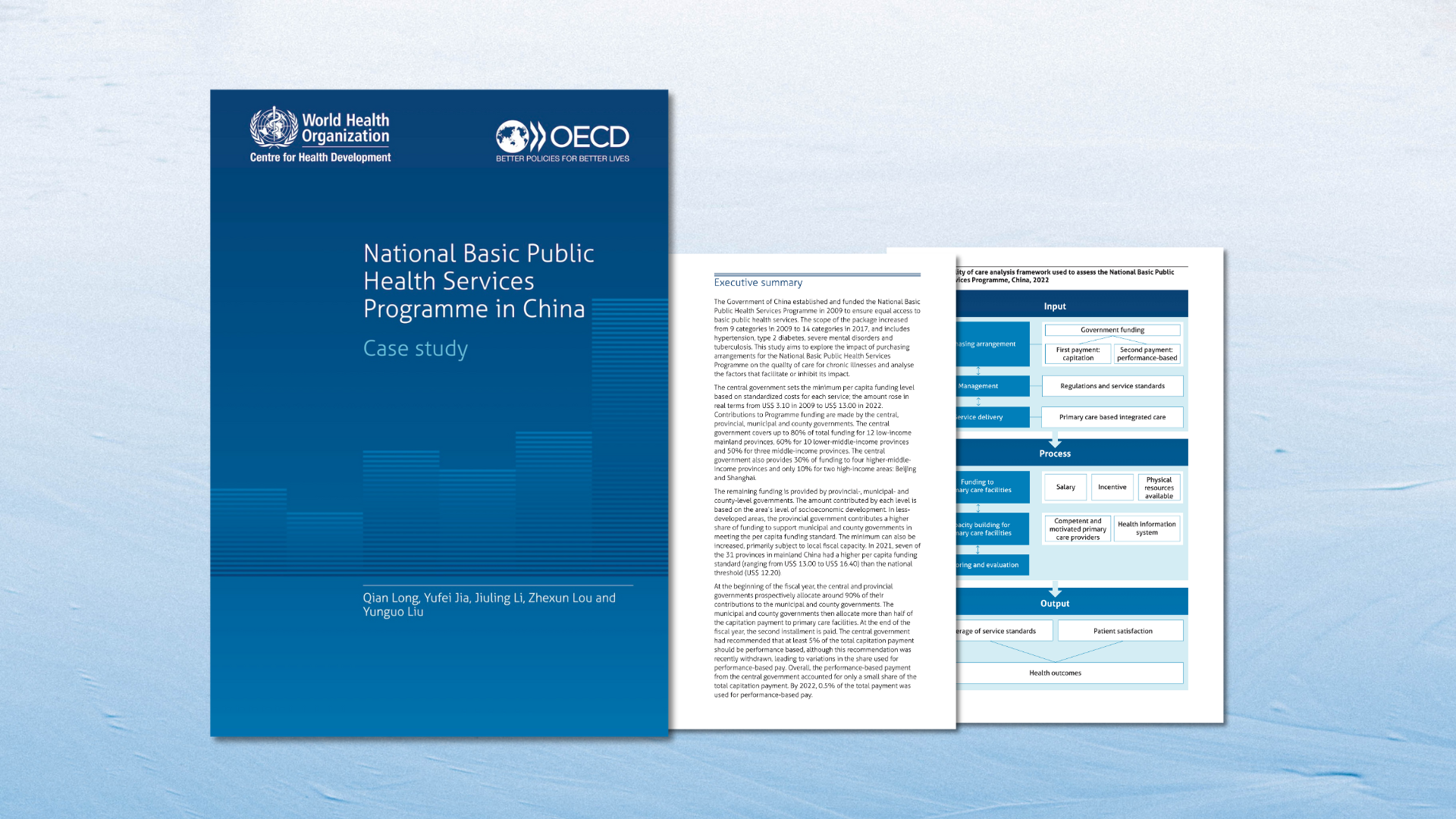A case study on China’s National Basic Public Health Services Program (NBPHSP) led by Prof. Qian Long and Prof. Yunguo Liu has been published jointly by the World Health Organization (WHO) and the Organization for Economic Cooperation and Development (OECD).

As part of the multi-country project supported by WHO, the report aims to focus on the role of purchasing arrangements in improving the quality of health services for non-communicable diseases (NCDs) and analyze factors that facilitated or inhibited its impact.
GHRC researchers Yufei Jia, Jiuling Li, and Zhexun Lou co-authored the report. Between 2022 and 2023, the team conducted a scoping literature review. The project selected two provinces, Jiangsu and Henan, to conduct qualitative interviews with 30 policymakers, hospital and PHC facility management team, and primary healthcare providers.
The NBPHSP is one of the five priorities of China’s new comprehensive health system reforms since 2009, and was established to ensure equal access to basic public health services for all. Under the program, the Chinese government sets a minimum per capita funding level based on standardized costs for health services, with contributions coming from central, provincial, municipal, and county governments. The amount that comes from the central government varies from 80 percent to 10 percent, depending on an area’s level of economic development.
The service package has expanded from nine categories in 2009 to 14 categories in 2017, covering NCD management (type 2 diabetes, hypertension, mental disorders, and tuberculosis), maternal and child health, health education, and tobacco control.
“Since the establishment of the NBPHSP, there has been a significant improvement in the coverage of basic public health services related to NCDs, and the tilting of central government finances toward low- and middle-income provinces has helped to narrow the gap between developed and less-developed regions, achieving standardized basic healthcare services for all. We believe the case study will provide other low- and middle-income countries with important experience in achieving universal healthcare coverage,” Prof. Yunguo Liu noted.
“In our study, we found that despite the increase in government financial inputs and the increase in the categories, further improvement in the quality of care is constrained in the less developed regions due to weak governance at the grassroots level, limited resource inputs to compensate for the operation of the primary healthcare facilities, and insufficient incentives for healthcare providers. “Prof. Qian Long said.
The lack of synergy in healthcare information systems and ineffective synergy between preventive services and clinical treatment, in addition to affecting the continuity of care received by NCD patients, also hinders the acquisition of quality data to provide reference for policy evaluation.
“Our assessment also provides an important evidence-based basis for policymakers to optimize basic public health services further. Improving the quality of basic public health services so that patients can conveniently and confidently see a doctor at their doorstep is crucial to preventing, controlling, and managing NCDs in China,” said Prof. Yunguo Liu.

